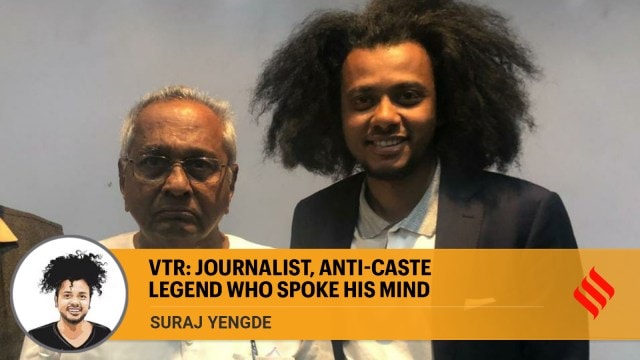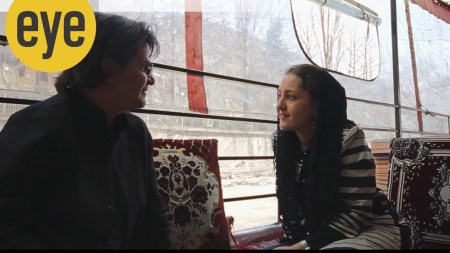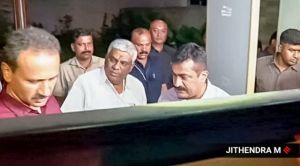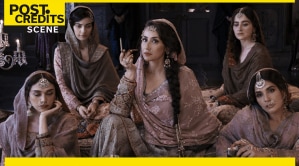- India
- International
VT Rajshekar: Journalist, anti-caste legend who spoke his mind
Vontibettu Thimmappa Rajshekar Shetty (VTR) authored 30 books centering on caste, nation and religion
 The author with VT Rajsekhar (left) in 2019 at the launch of the former's book, The Radical in Ambedkar.
The author with VT Rajsekhar (left) in 2019 at the launch of the former's book, The Radical in Ambedkar. There was a man who, when he filed his reports for The Indian Express this past century, ran his pen like a sharpened sword. Those who know or are acquainted with the man are well aware that he is unvarnished. His words are not to be taken lightly and more for the brilliance and polished elegance they proffer.
Vontibettu Thimmappa Rajshekar Shetty (VTR) is a far too familiar name for those from the Ambedkarite, anti-caste movement. Born on July 17, 1932 in Vontibettu, Karnataka, VTR is a well-known name that has nourished the intellectual life of the anti-caste sphere since the 1970s.
While VTR started the world-famous periodical Dalit Voice in 1981 to intervene on behalf of Dalits, he had been writing on Dalit issues from much before. It was also the decade that preceded the foray into journalism of Kanshi Ram, who started Untouchable India in 1972 and The Oppressed Indian in 1979, journals that made a pitch for Dalit humanism in the English language. The politics of Kanshi Ram and VTR aligned but also differed since VTR was too miliant for Kanshi Ram. However, their commitment for Bahujan rule brought them together. They set up a national media house by converting VTR’s Dalit Sahithya Akademy and purchased land in Haryana but it did not take off owing to Kanshi Ram’s premature death.
VTR held no punches when it came to delivering his finest against the hypocrisies of the Brahminical state order. His creed of politics was internationalism. He aligned with the Third World project of radical movements, made alliances with the African-American movements, and was a guest of Colonel Gaddafi of Libya.
He spent most of his time attacking the Hindu caste violence. Part of his daring zeal can be attributed to his background. Born in a Dravidian Bunt community, VTR is known to have gangsterised his reign of terror on savarna elites. Bunts were also among the Shudra community who did not employ Brahmins to officiate their rituals until recently.

His advocacy for the oppressed saw VTR being a marked man and being booked under India’s Terrorism and Anti-Disruptive Activities Act. His passport was impounded by the Congress government and it took the government headed by a fellow Kannadiga, Deva Gowada, to release the document to him.
VTR intervened in the meaning and material of the word Dalit. He professed the 21st century to be the “triumph of Ambedkarism”. He appealed to Dalits, “Let us be proud of our Dalit culture. Black is beautiful.”
He saw caste as a marker aligned to race. The Dravidian analogy of Phule and Periyar sat well with his theories. He branded deniers of reservation as “anti-reservation racists”, as the subtitle of one of his books states.
VTR authored 30 books centering on caste, nation and religion. His most famous work remains Dalit: The Black Untouchables of India. Not an easy read for the uninitiated, this book communicated with the liberation struggles outside India.
It inspired contemporary African-American activists to develop solidarity with the Dalits. VTR borrowed from the radical movement of Africans and African Americans, and the anti-capitalist, anti-imperial struggles of the world.
His invocation of “caste as a nation within the nation” was a reference to the radical Black Americans who saw African-Americans as a colony within the United States of America. For VTR, caste operated as a nation itself rather than the subsidiary of the nation-state. He described caste as “apartheid in India”.
For his continued advocacy and writing, VTR was invited to many important national and international forums. Howard University hosted the 107th birthday celebration of Dr Ambedkar, an event for which they wanted VTR as the chief guest. However, he was not able to procure the required travel documents. The organisers of the event, the Dr Ambedkar Memorial Trust of America and Graduate Student Council, wrote to visa authorities strongly endorsing the calibre of Rajasekhar.
The enormity of VTR’s work and the humongous archive of Dalit Voice is waiting to be digitised. The man himself has many stories to share and experiences to embalm the curious ones. Living by his principles and not giving in to the fickleness, VTR has chosen to live all alone in Mangaluru, though he has the luxury of travelling to London, where his son, Salil, the former head of Amnesty International, resides. At the age of 92, he even cooks his own food and actively participates in movements. The father and children argue about the inadequacy of the international community’s work in eradicating caste. VTR bemoans the absence of an active pan-Indian Dalit movement today. He was someone who fiercely advocated for Dalit-Muslim unity. He compared the coming together of the two as “petrol and fire” that would burn Brahminical forces.
But VTR had to wind up Dalit Voice due to the assault of the BJP, which he rechristened as Brahmana Jaati Party.
A grand salute to his remarkable life in a newspaper where he wrote for a quarter of a century is only befitting. He is among the honorable predecessors to the space I hold at Dalitality. As is the case with many anti-caste legends, V T Rajshekar is also not adequately honoured and celebrated for their excellence. To honour his work, I am planning to start a national award for fearless journalists in the name of V T Rajshekar.
Suraj Yengde, author of Caste Matters, curates Dalitality and is currently at Oxford University
EXPRESS OPINION
More Explained
May 04: Latest News
- 01
- 02
- 03
- 04
- 05








































